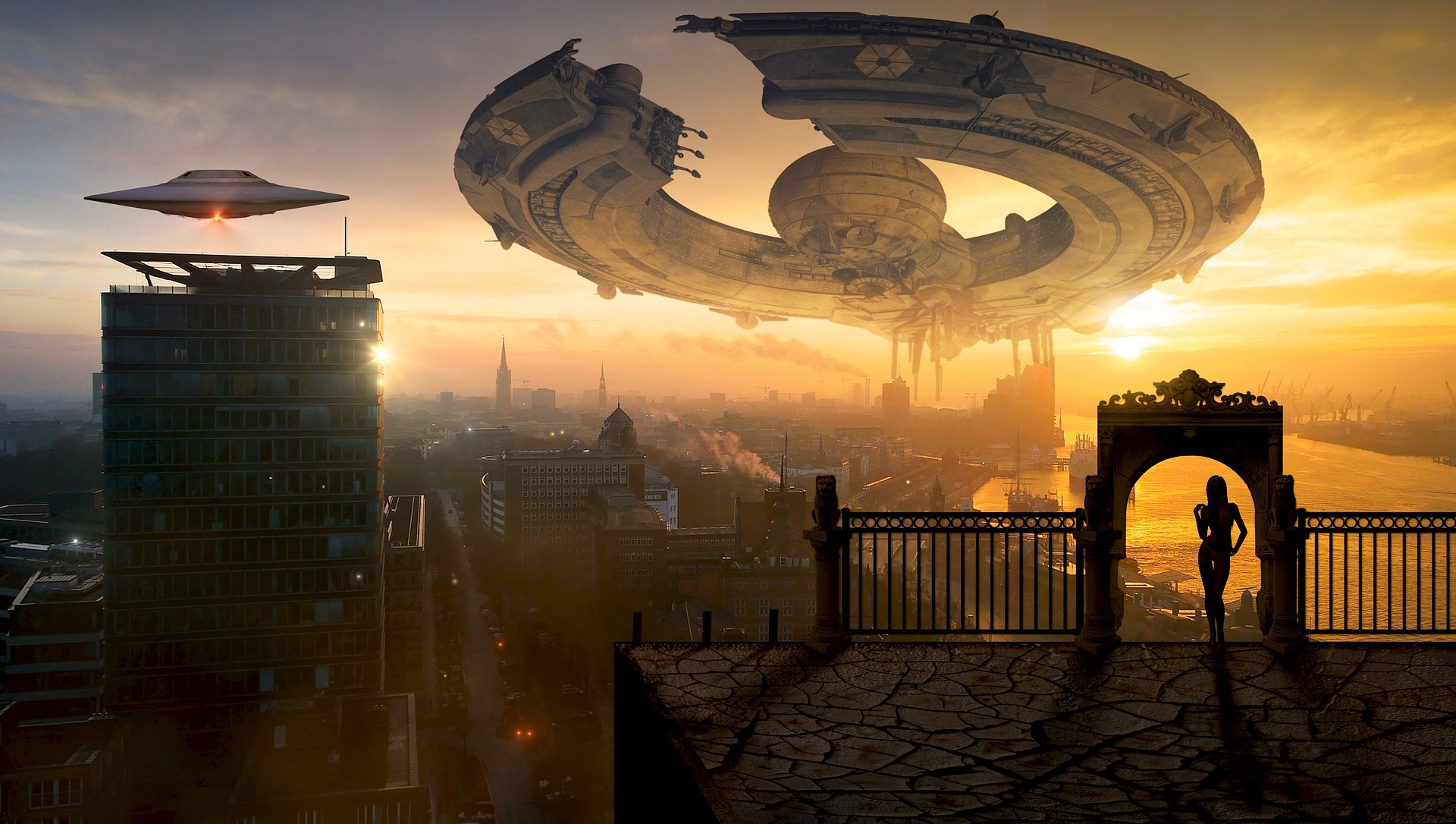12 pandemic-escaping sci-fi books to take you to another world
 Processing Request
Processing Request
CHARLESTON, S.C. - No one knows books and gives better recommendations than librarians. That's one of our favorite things to do, and we spend a lot of time researching and reading new books and old ones to keep our recommendations fresh.
With our branches closed to the public, having those conversations is a lot more difficult. But it's not impossible! And that's why CCPL's librarians have been digging through our digital resources to build list upon list of digital recommendations.
This list of sci-fi titles comes from Mike Corbo at the Baxter-Patrick James Island Library.
"Science fiction is such a diverse genre. It can be character driven, world-building, humorous, and thrilling. From stand-alone books, short stories and novellas to expansive multi-book series, science fiction has a variety of options for readers," Corbo said. "If you want to let your imagination roam for a bit into a new world, science fiction is a great place to turn. It can be complex and cause readers to think but it can be fun and playful, as well."
Mike put together a list of some classic and contemporary science fiction books currently available in our digital collection.
Now, let's check out that book list!
Frankenstein by Mary Shelley
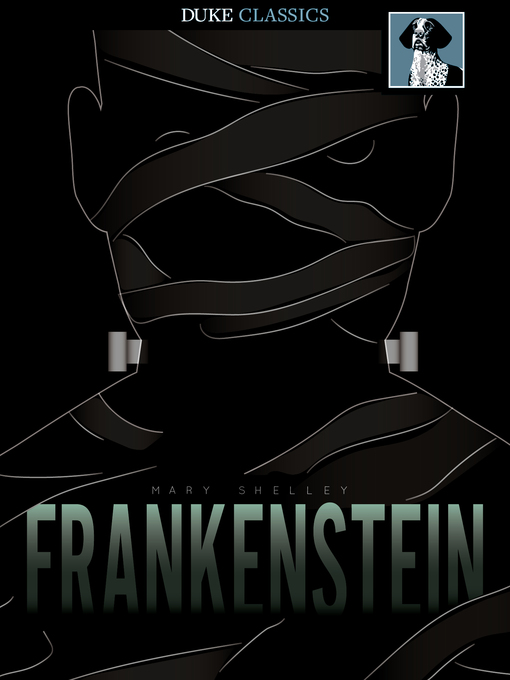 Frankenstein or The Modern Prometheus, was completed by Mary Shelley at the age of 19. She infused this original novel with Gothic and Romantic elements. Scientist Victor Frankenstein creates a large and powerful creature in the likeness of man, but is disgusted by his own creation and he abandons the being to fend for itself. Spawning generations of horror stories in the genre, Frankenstein is a gruesome warning against playing God and attempting the engineering of life.
Frankenstein or The Modern Prometheus, was completed by Mary Shelley at the age of 19. She infused this original novel with Gothic and Romantic elements. Scientist Victor Frankenstein creates a large and powerful creature in the likeness of man, but is disgusted by his own creation and he abandons the being to fend for itself. Spawning generations of horror stories in the genre, Frankenstein is a gruesome warning against playing God and attempting the engineering of life.
Brave New World by Aldous Huxley
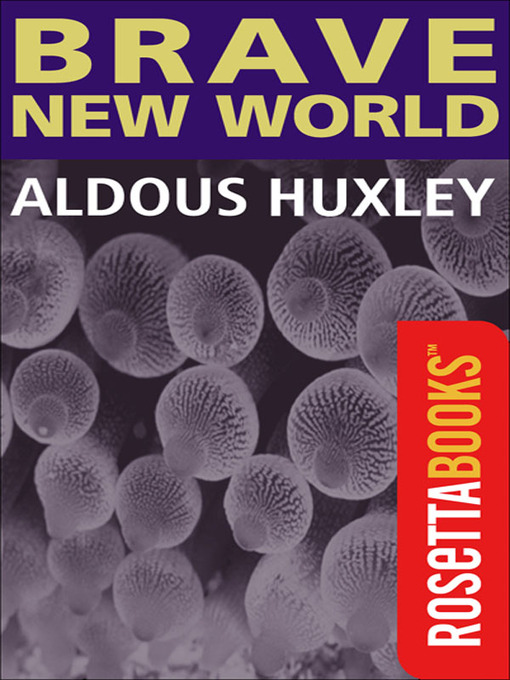 Huxley's bleak future prophesized in Brave New World was a capitalist civilization which had been reconstituted through scientific and psychological engineering, a world in which people are genetically designed to be passive and useful to the ruling class. Satirical and disturbing, Brave New World is set some 600 years ahead, in "this year of stability, A.F. 632"—the A.F. standing for After Ford, meaning the godlike Henry Ford. "Community, Identity, Stability," is the motto. Reproduction is controlled through genetic engineering, and people are bred into a rigid class system. As they mature, they are conditioned to be happy with the roles that society has created for them. The rest of their lives are devoted to the pursuit of pleasure through sex, recreational sports, the getting and having of material possessions, and taking a drug called Soma. Concepts such as family, freedom, love, and culture are considered grotesque.
Huxley's bleak future prophesized in Brave New World was a capitalist civilization which had been reconstituted through scientific and psychological engineering, a world in which people are genetically designed to be passive and useful to the ruling class. Satirical and disturbing, Brave New World is set some 600 years ahead, in "this year of stability, A.F. 632"—the A.F. standing for After Ford, meaning the godlike Henry Ford. "Community, Identity, Stability," is the motto. Reproduction is controlled through genetic engineering, and people are bred into a rigid class system. As they mature, they are conditioned to be happy with the roles that society has created for them. The rest of their lives are devoted to the pursuit of pleasure through sex, recreational sports, the getting and having of material possessions, and taking a drug called Soma. Concepts such as family, freedom, love, and culture are considered grotesque.
Against this backdrop, a young man known as John the Savage is brought to London from the remote desert of New Mexico. What he sees in the new civilization a "brave new world" (quoting Shakespeare's The Tempest). However, ultimately, John challenges the basic premise of this society in an act that threatens and fascinates its citizens.
Huxley uses his entire prowess to throw the idea of utopia into reverse, presenting us what is known as the "dystopian" novel. When Brave New World was written (1931), neither Hitler nor Stalin had risen to power. Huxley saw the enduring threat to society from the dark side of scientific and social progress, and mankind's increasing appetite for simple amusement. Brave New World is a work that indicts the idea of progress for progress sake and is backed up with force and reason.
I, Robot by Isaac Asimov
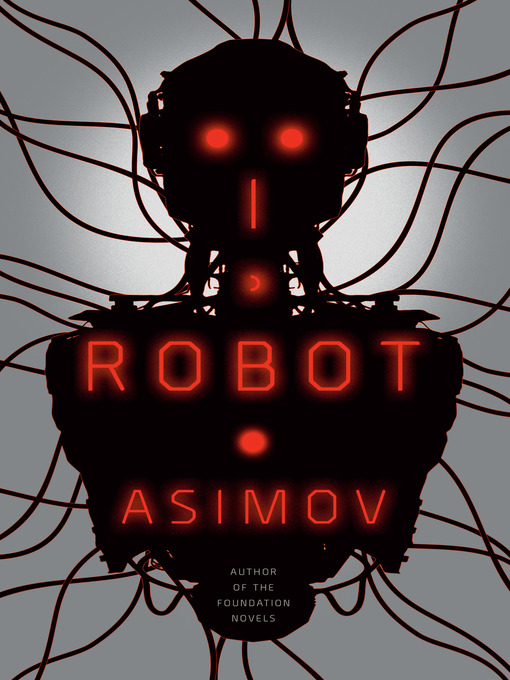 I, Robot, the first and most widely read book in Asimov's Robot series, forever changed the world's perception of artificial intelligence. Here are stories of robots gone mad, of mind-reading robots, and robots with a sense of humor. Of robot politicians, and robots who secretly run the world—all told with the dramatic blend of science fact and science fiction that has become Asimov's trademark.
I, Robot, the first and most widely read book in Asimov's Robot series, forever changed the world's perception of artificial intelligence. Here are stories of robots gone mad, of mind-reading robots, and robots with a sense of humor. Of robot politicians, and robots who secretly run the world—all told with the dramatic blend of science fact and science fiction that has become Asimov's trademark.
The Three Laws of Robotics:
1) A robot may not injure a human being or, through inaction, allow a human being to come to harm.
2) A robot must obey orders given to it by human beings except where such orders would conflict with the First Law.
3) A robot must protect its own existence as long as such protection does not conflict with the First or Second Law.
With these three, simple directives, Isaac Asimov formulated the laws governing robots' behavior. In I, Robot, Asimov chronicles the development of the robot from its primitive origins in the present to its ultimate perfection in the not-so-distant future—a future in which humanity itself may be rendered obsolete.
Dune by Frank Herbert
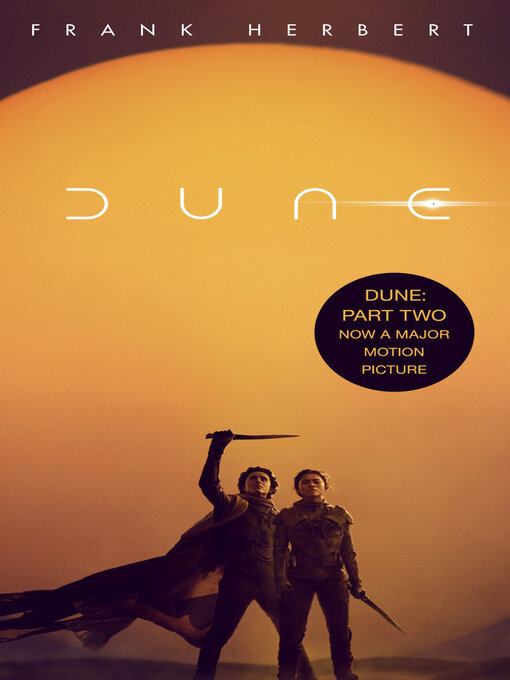 Set on the desert planet Arrakis, Dune is the story of the boy Paul Atreides, heir to a noble family tasked with ruling an inhospitable world where the only thing of value is the "spice" melange, a drug capable of extending life and enhancing consciousness. Coveted across the known universe, melange is a prize worth killing for....
Set on the desert planet Arrakis, Dune is the story of the boy Paul Atreides, heir to a noble family tasked with ruling an inhospitable world where the only thing of value is the "spice" melange, a drug capable of extending life and enhancing consciousness. Coveted across the known universe, melange is a prize worth killing for....
When House Atreides is betrayed, the destruction of Paul's family will set the boy on a journey toward a destiny greater than he could ever have imagined. And as he evolves into the mysterious man known as Muad'Dib, he will bring to fruition humankind's most ancient and unattainable dream.
A stunning blend of adventure and mysticism, environmentalism and politics, Dune won the first Nebula Award, shared the Hugo Award, and formed the basis of what is undoubtedly the grandest epic in science fiction.
Do Androids Dream of Electric Sheep? By Philip K. Dick
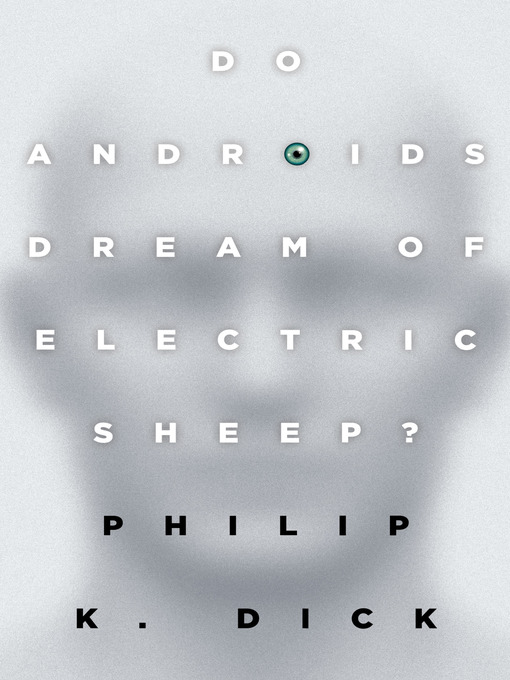 By 2021, the World War has killed millions, driving entire species into extinction and sending mankind off-planet. Those who remain covet any living creature, and for people who can't afford one, companies built incredibly realistic simulacra: horses, birds, cats, sheep. They've even built humans. Immigrants to Mars receive androids so sophisticated they are indistinguishable from true men or women. Fearful of the havoc these artificial humans can wreak, the government bans them from Earth. Driven into hiding, unauthorized androids live among human beings, undetected. Rick Deckard, an officially sanctioned bounty hunter, is commissioned to find rogue androids and "retire" them. But when cornered, androids fight back—with lethal force.
By 2021, the World War has killed millions, driving entire species into extinction and sending mankind off-planet. Those who remain covet any living creature, and for people who can't afford one, companies built incredibly realistic simulacra: horses, birds, cats, sheep. They've even built humans. Immigrants to Mars receive androids so sophisticated they are indistinguishable from true men or women. Fearful of the havoc these artificial humans can wreak, the government bans them from Earth. Driven into hiding, unauthorized androids live among human beings, undetected. Rick Deckard, an officially sanctioned bounty hunter, is commissioned to find rogue androids and "retire" them. But when cornered, androids fight back—with lethal force.
The Hitchhiker’s Guide to the Galaxy by Douglas Adams
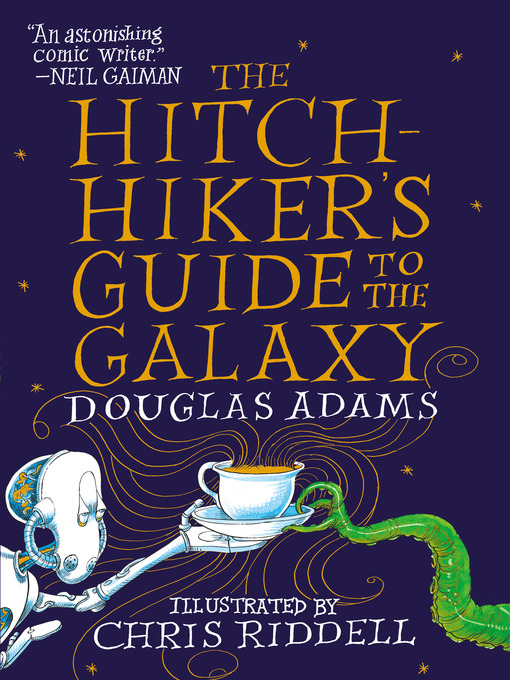 Seconds before Earth is demolished to make way for a galactic freeway, Arthur Dent is plucked off the planet by his friend Ford Prefect, a researcher for the revised edition of The Hitchhiker's Guide to the Galaxy who, for the last fifteen years, has been posing as an out-of-work actor.
Seconds before Earth is demolished to make way for a galactic freeway, Arthur Dent is plucked off the planet by his friend Ford Prefect, a researcher for the revised edition of The Hitchhiker's Guide to the Galaxy who, for the last fifteen years, has been posing as an out-of-work actor.
Together, this dynamic pair began a journey through space aided by a galaxyful of fellow travelers: Zaphod Beeblebrox—the two-headed, three-armed ex-hippie and totally out-to-lunch president of the galaxy; Trillian (formerly Tricia McMillan), Zaphod's girlfriend, whom Arthur tried to pick up at a cocktail party once upon a time zone; Marvin, a paranoid, brilliant, and chronically depressed robot; and Veet Voojagig, a former graduate student obsessed with the disappearance of all the ballpoint pens he's bought over the years.
Where are these pens? Why are we born? Why do we die? For all the answers, stick your thumb to the stars!
Ender’s Game by Orson Scott Card
 In order to develop a secure defense against a hostile alien race's next attack, government agencies breed child geniuses and train them as soldiers. A brilliant young boy, Andrew "Ender" Wiggin lives with his kind but distant parents, his sadistic brother Peter, and the person he loves more than anyone else, his sister Valentine. Peter and Valentine were candidates for the soldier-training program but didn't make the cut—young Ender is the Wiggin drafted to the orbiting Battle School for rigorous military training.
In order to develop a secure defense against a hostile alien race's next attack, government agencies breed child geniuses and train them as soldiers. A brilliant young boy, Andrew "Ender" Wiggin lives with his kind but distant parents, his sadistic brother Peter, and the person he loves more than anyone else, his sister Valentine. Peter and Valentine were candidates for the soldier-training program but didn't make the cut—young Ender is the Wiggin drafted to the orbiting Battle School for rigorous military training.
Ender's skills make him a leader in school and respected in the Battle Room, where children play at mock battles in zero gravity. Yet growing up in an artificial community of young soldiers Ender suffers greatly from isolation, rivalry from his peers, pressure from the adult teachers, and an unsettling fear of the alien invaders. His psychological battles include loneliness, fear that he is becoming like the cruel brother he remembers, and fanning the flames of devotion to his beloved sister.
Is Ender the general Earth needs? But Ender is not the only result of the genetic experiments. The war with the Buggers has been raging for a hundred years, and the quest for the perfect general has been underway for almost as long. Ender's two older siblings are every bit as unusual as he is, but in very different ways. Between the three of them lie the abilities to remake a world. If, that is, the world survives.
Ready Player One by Ernest Cline
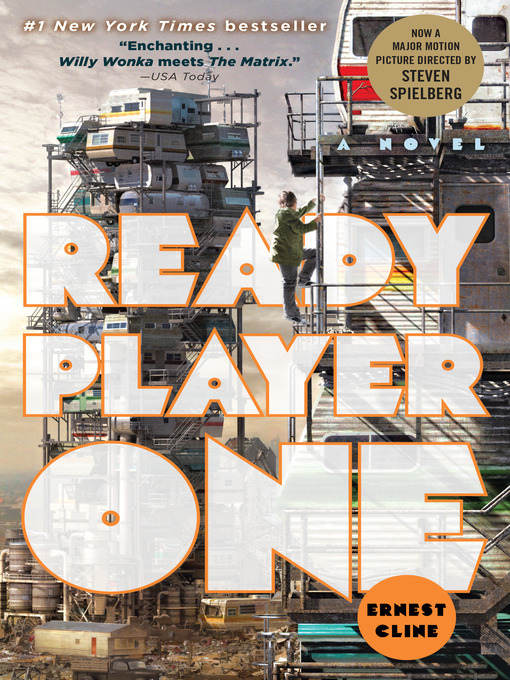 A world at stake. A quest for the ultimate prize. Are you ready?
A world at stake. A quest for the ultimate prize. Are you ready?
In the year 2045, reality is an ugly place. The only time Wade Watts really feels alive is when he's jacked into the OASIS, a vast virtual world where most of humanity spends their days.
When the eccentric creator of the OASIS dies, he leaves behind a series of fiendish puzzles, based on his obsession with the pop culture of decades past. Whoever is first to solve them will inherit his vast fortune—and control of the OASIS itself.
Then Wade cracks the first clue. Suddenly he's beset by rivals who'll kill to take this prize. The race is on—and the only way to survive is to win.
Leviathan Wakes by James S. A. Corey
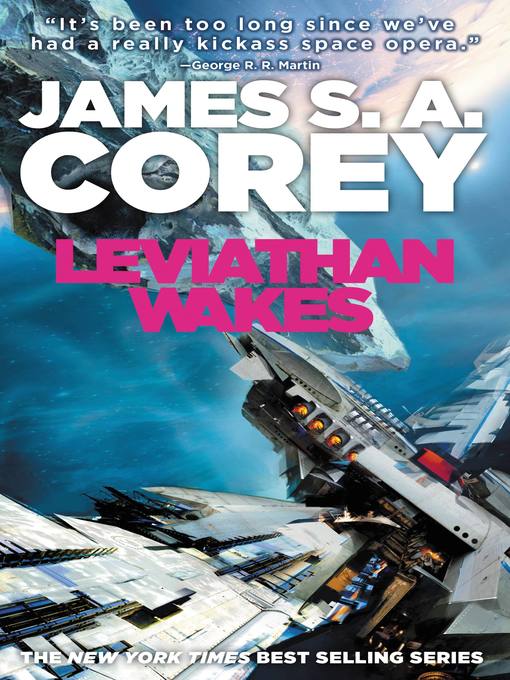 Humanity has colonized the solar system - Mars, the Moon, the Asteroid Belt and beyond - but the stars are still out of our reach.
Humanity has colonized the solar system - Mars, the Moon, the Asteroid Belt and beyond - but the stars are still out of our reach.
Jim Holden is XO of an ice miner making runs from the rings of Saturn to the mining stations of the Belt. When he and his crew stumble upon a derelict ship, the Scopuli, they find themselves in possession of a secret they never wanted. A secret that someone is willing to kill for - and kill on a scale unfathomable to Jim and his crew. War is brewing in the system unless he can find out who left the ship and why.
Detective Miller is looking for a girl. One girl in a system of billions, but her parents have money and money talks. When the trail leads him to the Scopuli and rebel sympathizer Holden, he realizes that this girl may be the key to everything.
Holden and Miller must thread the needle between the Earth government, the Outer Planet revolutionaries, and secretive corporations - and the odds are against them. But out in the Belt, the rules are different, and one small ship can change the fate of the universe.
Annihilation by Jeff VanderMeer
 Area X has been cut off from the rest of the continent for decades. Nature has reclaimed the last vestiges of human civilization. The first expedition returned with reports of a pristine, Edenic landscape; the second expedition ended in mass suicide, the third expedition in a hail of gunfire as its members turned on one another. The members of the eleventh expedition returned as shadows of their former selves, and within weeks, all had died of cancer. In Annihilation, the first volume of Jeff VanderMeer's Southern Reach trilogy, we join the twelfth expedition.
Area X has been cut off from the rest of the continent for decades. Nature has reclaimed the last vestiges of human civilization. The first expedition returned with reports of a pristine, Edenic landscape; the second expedition ended in mass suicide, the third expedition in a hail of gunfire as its members turned on one another. The members of the eleventh expedition returned as shadows of their former selves, and within weeks, all had died of cancer. In Annihilation, the first volume of Jeff VanderMeer's Southern Reach trilogy, we join the twelfth expedition.
The group is made up of four women: an anthropologist; a surveyor; a psychologist, the de facto leader; and our narrator, a biologist. Their mission is to map the terrain, record all observations of their surroundings and of one anotioner, and, above all, avoid being contaminated by Area X itself.
They arrive expecting the unexpected, and Area X delivers—they discover a massive topographic anomaly and life forms that surpass understanding—but it's the surprises that came across the border with them and the secrets the expedition members are keeping from one another that change everything.
The Martian by Andy Weir
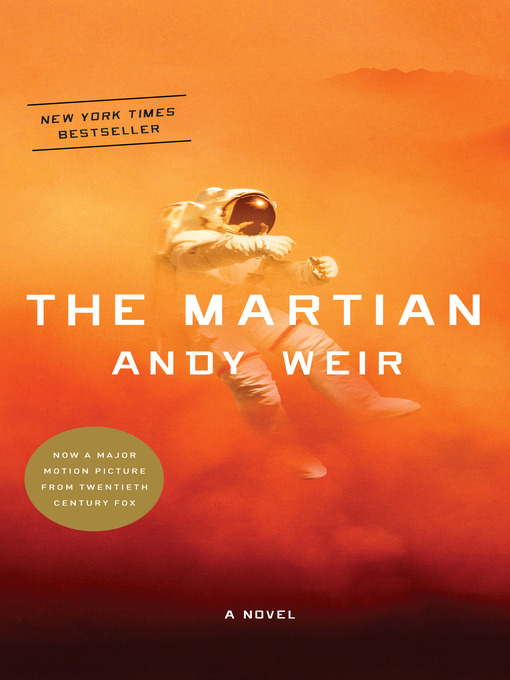 Six days ago, astronaut Mark Watney became one of the first people to walk on Mars.
Six days ago, astronaut Mark Watney became one of the first people to walk on Mars.
Now, he's sure he'll be the first person to die there.
After a dust storm nearly kills him and forces his crew to evacuate while thinking him dead, Mark finds himself stranded and completely alone with no way to even signal Earth that he's alive—and even if he could get word out, his supplies would be gone long before a rescue could arrive.
Chances are, though, he won't have time to starve to death. The damaged machinery, unforgiving environment, or plain-old "human error" are much more likely to kill him first.
But Mark isn't ready to give up yet. Drawing on his ingenuity, his engineering skills—and a relentless, dogged refusal to quit—he steadfastly confronts one seemingly insurmountable obstacle after the next. Will his resourcefulness be enough to overcome the impossible odds against him?
All Systems Red by Martha Wells
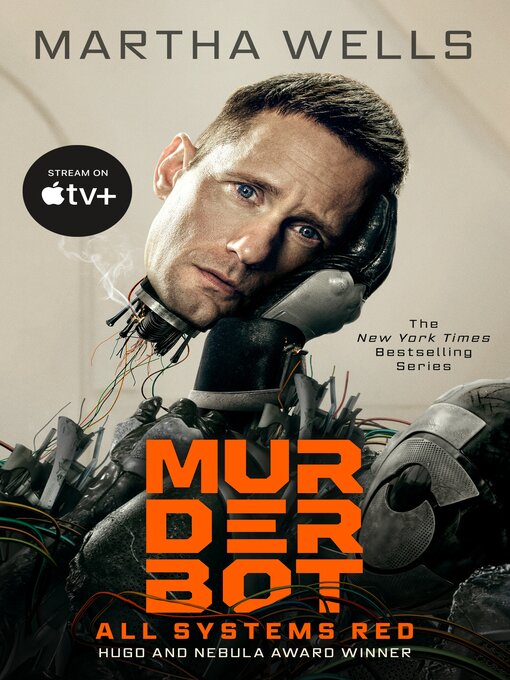 In a corporate-dominated spacefaring future, planetary missions must be approved and supplied by the Company. Exploratory teams are accompanied by Company-supplied security androids, for their own safety.
In a corporate-dominated spacefaring future, planetary missions must be approved and supplied by the Company. Exploratory teams are accompanied by Company-supplied security androids, for their own safety.
But in a society where contracts are awarded to the lowest bidder, safety isn't a primary concern.
On a distant planet, a team of scientists are conducting surface tests, shadowed by their Company-supplied 'droid — a self-aware SecUnit that has hacked its own governor module, and refers to itself (though never out loud) as "Murderbot." Scornful of humans, all it really wants is to be left alone long enough to figure out who it is.
But when a neighboring mission goes dark, it's up to the scientists and their Murderbot to get to the truth.
- Log in to post comments

